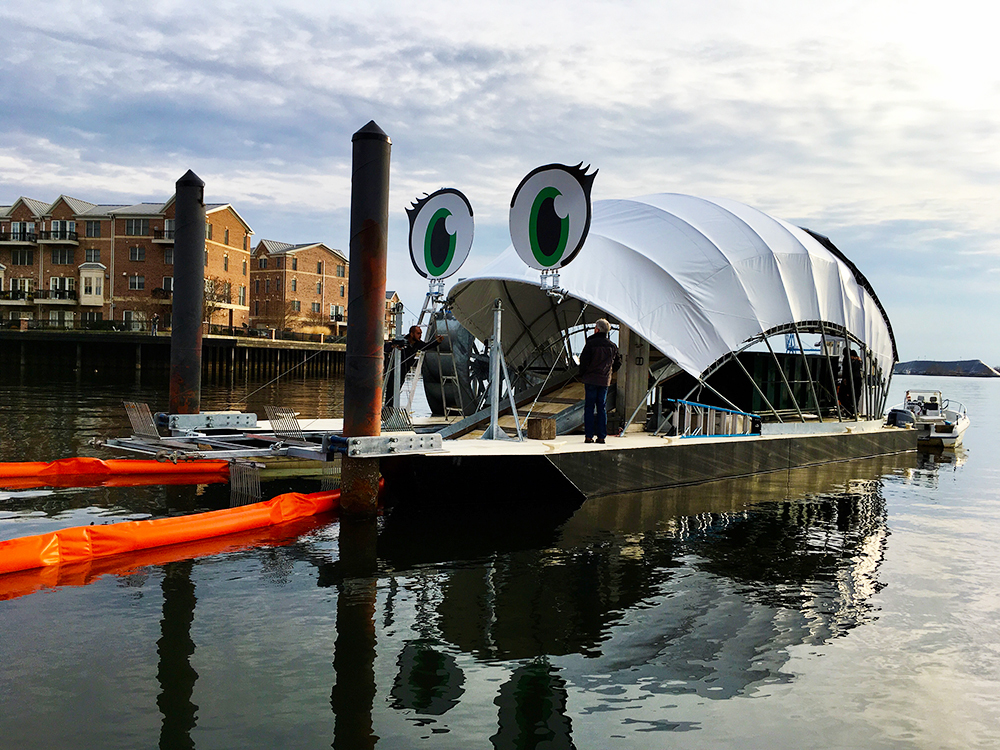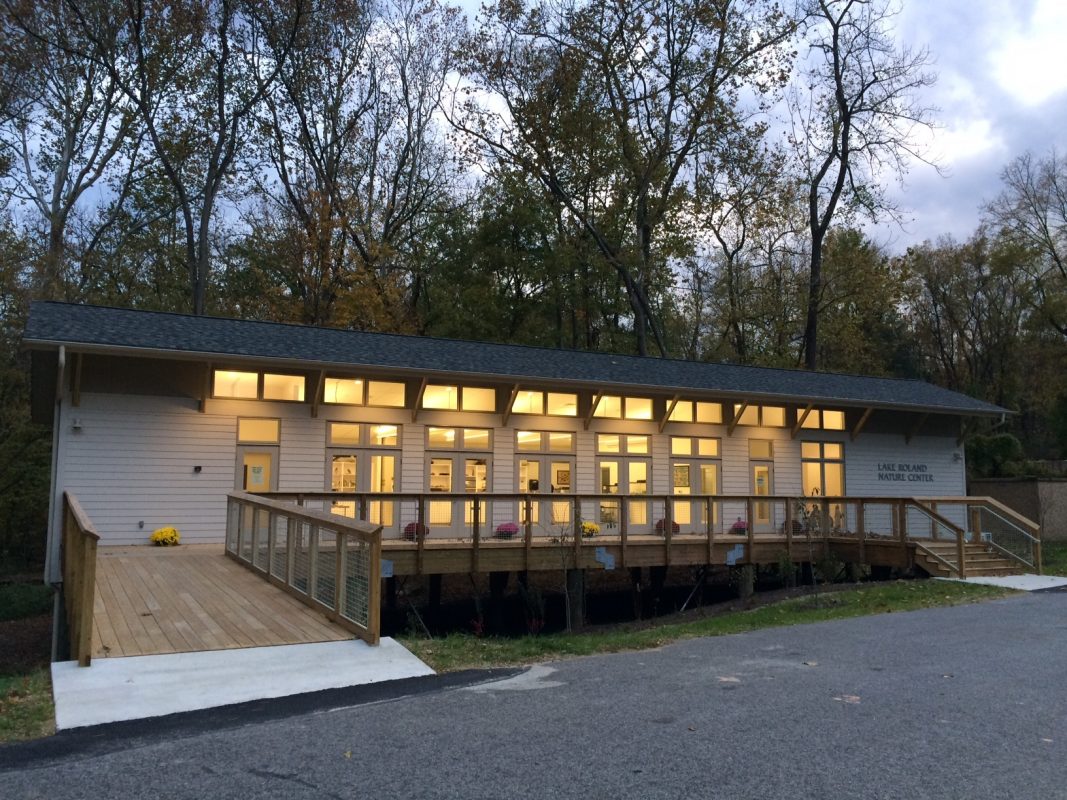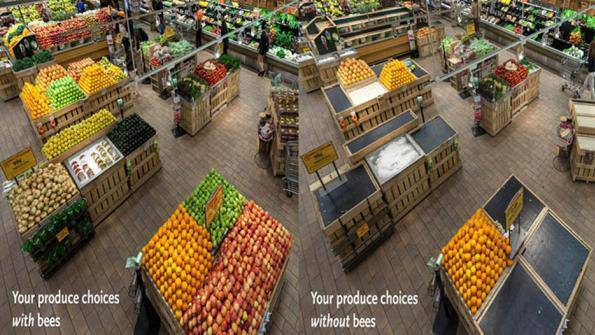

Nature News
Have you ever seen the alarming photos of what a supermarket produce section would look like without bees? If not, here you go:

So we all get that bees are critical agents in the food chain, right? Well then, one local beekeeper has some bad news for us.
Bill Castro, who runs Bee Friendly Apiary out of his home in Southwest Baltimore, says more than 56 percent of managed honeybee colonies in Maryland were lost in 2016. This follows a three-year average loss of 54 percent.
“This means that beekeepers in Maryland spend over $1.13 million every year to replace approximately 7,600 lost registered honeybee colonies,” writes Castro in an email. “If managed honey bee losses are this high, how do we think that wild native bee populations are fairing?”
The statistic Castro cites comes from Bee Informed Partnership, a collaborative effort among academic institutions, agriculturalists, scientists, and apiary owners to better understand honey bee declines in the United States. The troubling figure reinforces worries about worldwide losses from so-called Colony Collapse Disorder—an inexplicable dying off of hives—that researchers theorize is caused by pesticide use, parasites, and loss of habitat. However, recent stories indicate that the problem may not be as dire as previously thought.
In any case, local bee populations seem to be among those still suffering.
One step the average citizen can take to help the bees is to stagger garden plantings, so at least some flora is always blooming throughout the season. Bees begin foraging in early spring and continue until late fall. However, many garden plants and agriculture crops bloom only in the spring or fall, leaving the bees with little to sustain them the rest of the year.
Your local garden center can probably help you pick plants preferred by pollinator, which include bees, butterflies, birds, bats, and several other insects. Or, if you want to be super eco-friendly, Herring Run Nursery in Baltimore City can provide expertise in creating a pollinator garden using only plant species native to Maryland.
BGE took a small but symbolically significant step toward pollinator preservation in mid-November when it announced a partnership with the Maryland Department of Natural Resources to return approximately 200 acres of utility-managed land in state parks to natural meadow habitat.
“This partnership benefits the state, our customers and, most importantly, the pollinators that are vital for a healthy environment,” said Derrick Dickens, vice president of Technical Services for BGE. “Changing the way we manage these electric rights of way will encourage the return of pollinators and native ecosystems, while still ensuring that power lines are safely maintained.”
Sustainability Shorts
After discontinuing its composting drop-off program for several months while it overhauled its system, Real Food Farm is once again accepting food scraps at its Clifton Park location. The farm’s new system—developed in tandem with the Institute for Local Self-Reliance and Urban Farm Plans—follows a co-op model that asks participants to take a one-hour training course before joining and then volunteer one hour per month to maintain membership. Once joined, members can drop off kitchen scraps any time and take home finished compost to fertilize their own gardens. If residents would like to participate but don’t have time to volunteer, Real Food Farm also accepts compost via Compost Cab, a collection service that operates in the Baltimore and D.C. metro areas.
Somewhere between 20 and 40 percent of all food in the U.S. goes to waste, ending up in landfills where it decomposes and emits methane, a greenhouse gas several times more potent than carbon dioxide. Composting is one way to divert unused food from landfill. Gleaning—the process of collecting excess food in order to feed food-insecure populations—is another. There are several local organizations that facilitate gleaning, including Gather Baltimore, Hungry Harvest, and the Mid-Atlantic Gleaning Network.
Visiting Laureate
On Wednesday, the famed poet, environmentalist, and farmer Wendell Berry spoke at the Johns Hopkins Bloomberg School of Public Health about finding hope and sanctuary in a simple life lived in harmony with the natural world.
“I can’t give anybody hope,” said Berry, who spoke as part of a celebration marking the 20th anniversary of the school’s Center for a Livable Future. “Hope has to come up out of you … To find something worth hoping for is a very good place to start. There are things worth hoping for, there are good people, this is still a very beautiful world.”
A recap of the talk, which was led by journalist Eric Schlosser, can be found here.
